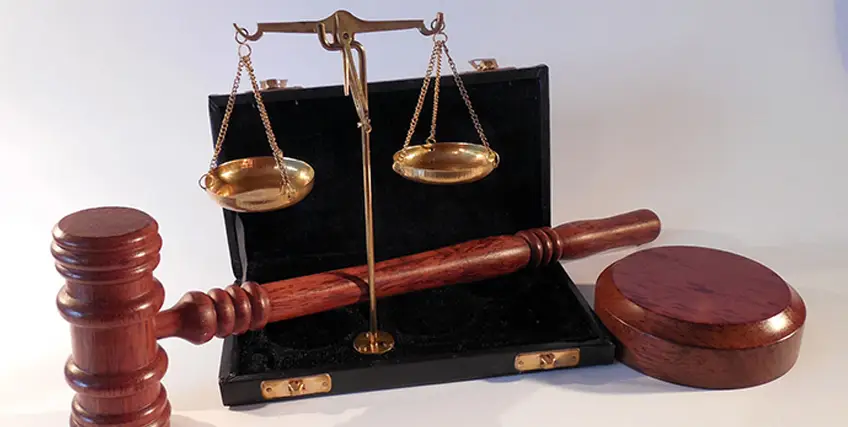What Documents Do You Need to Apply for a Small Business Loan Online?
December 26, 2024 | Last Updated on: December 26, 2024

A small business loan can help you grow your business, take advantage of a business opportunity, pay for emergency business needs, and much more. But the loan application process isn’t always a breeze. It requires a lot of information and documentation, and many entrepreneurs and small business owners get stuck because they don’t have the right documents on hand. This can result in financing delays or even loan denial.
In this article:
- The basic business loan application process and how to apply for a small business loan online.
- Small business loan requirements, including the paperwork you need.
- How to find the right lender for your situation.
Why do you need a business loan?
Using a small business loan has immediate benefits, like getting the capital to launch your business or expand operations. That said, loans can be intimidating because some entrepreneurs fear taking on too much debt. However, when properly planned, the right loan amount can help your business today and in the future.
Short-term benefits
A business loan can help your small business get fast funding when you need it, which can help:
- Fund payroll
- Purchase inventory
- Supplement cash flow
- Purchase business equipment or real estate
- Ramp up marketing efforts
- Expand
- Cover operational expenses
- Consolidate debt
The business loan application process for short-term loans in smaller amounts also tends to be a bit easier than applying for major long-term loans. Other financing options like equipment leasing or working capital loans may also have easier qualification requirements.
Long-term benefits
A small business loan can help secure future financial stability in the following ways:
- Improve the creditworthiness of the business
- Stabilize cash flow fluctuations
- Tax deductions
- Eliminate high-interest debt
- Retain ownership
- Growth opportunities
Long-term financing programs can put your business on track for sustainable success.
What documents are needed for a small business loan application?
If you’re sure business lending is for you, it’s important to understand the business loan application process. Knowing small business loan requirements and how to apply for a small business loan online can streamline your approval.
Each lender and type of loan will have different document requirements for qualifying loan applicants. However, there are some industry-standard documents you may want to gather ahead of time.
Credit reports
Lenders determine loan eligibility based on many factors, but credit approval is one of the most important. Any lender will review a business owner’s credit, or FICO score, as well as a business credit score if your business has one.
Before reaching out to a lender and applying for a loan, it’s a smart move to know your personal and business credit scores. While the lender will likely run a credit report with one or more major credit bureaus, you can check your credit report for free. Having a copy of the credit report can help you rule out lenders with higher minimum credit score requirements.
Startup business owners and some small business owners in their first two years of operations may not have an established business credit history or might even have bad credit. That does not mean you can’t qualify for a loan. You’ll have to be more selective, though, and may prefer more accessible loan options like a business line of credit.
Bank statements
Lenders may request copies of statements for your business banking account. Underwriters will use your account information to verify the age of the business, which is why new business owners must open a business bank account as soon as possible. (Online banking is very easy to set up.)
Bank statements of checking and savings accounts are an important part of business loan applications. In addition to proving your company’s liquidity and ability to repay the loan, it gives the lender a better idea of how your business earns and spends money. This can help inform loan repayment terms that work for your business.
You may want to have 1-3 months’ worth of statements on hand, but lenders may prefer to link electronically to your bank account with your permission. This will allow them to verify your reported information and confirm that the bank account information is correct, so there will be no delays when it’s time to get funded.
Income tax returns
Lenders often ask for two years of your business’ income tax returns. Tax returns give the necessary information that lenders use to make a credit decision about your small business. Lenders will focus on income, business assets, and operational expenses when reviewing the returns.
Tax returns also confirm the tax identification number for your business and that the income is sufficient to handle the new loan payments. Some business loan applications will also require copies of your personal income tax returns. For new businesses, the lenders may use a combination of the business’s income and your personal finances.
In some cases, borrowers may need to provide a personal guarantee or put up collateral to secure a small business loan. In those cases, your income tax returns will support your personal assets. If you don’t have a copy of your business or personal tax returns, you can request a copy through the IRS.
Debt schedule
Your existing debt is an important factor of any business loan application. Your lender needs to see other debts, including small business loans, commercial real estate loans, commercial equipment loans, lines of credit, and business credit cards. Most of this information is available on your credit report, but it doesn’t hurt to offer a transparent debt schedule.
Lenders calculate a business’s debt-to-income ratio (DTI) to evaluate a business owner’s ability to make monthly payments. A low DTI indicates that the company is making enough money to cover its obligations and is preferred by lenders. A high debt balance without a substantiating income will indicate a high DTI.
A high DTI won’t necessarily disqualify you from getting a business loan, but it may limit the financing solutions available to you and may require you to put up collateral or figure out a flexible financing plan with an alternative lender.
Collateral documentation
Collateral is an asset held by the lender to ensure the loan is repaid. If a borrower defaults on their loan, asset ownership is transferred to the lending company. Loans requiring collateral are called secured loans, and they’re not uncommon for small businesses.
For example, term loans often use real estate as collateral, where the lender holds the title to the asset for the duration of the repayment terms. If you have equipment financing needs, equipment financing options usually use the purchased equipment to secure the loan so that the loan term becomes the useful life of the equipment.
Sometimes, collateral is necessary for financing options for small businesses that don’t need to purchase large assets. For instance, Merchant cash advances (MCA) use future credit card sales as collateral and invoice financing and invoice factoring fund borrowers and use unpaid invoices as collateral.
Financial statements
Some lenders will request copies of your business’s financial statements, including a balance sheet and income statement. The balance sheet shows the lender what your small business owns (assets) and what they owe (liabilities). The income statement, or profit and loss statement (P&L), shows what a business makes (annual revenue) and what it spends (expenses). These statements help a lender get a big picture of whether your business can sustain a new loan.
Business plan
A business plan is a formal document explaining your business's purpose. It overviews key personnel, goals, marketing, operations, finances, and the competition. A successful business plan is frequently reviewed and updated over time since it works as a guide for executives and key staff members.
A business plan is a great planning tool for all businesses, but if you don’t have one for your business, consider writing a business plan before applying for a business loan. Lenders and investors often want to see a business plan because it shows industry expertise and a plan for how to use the money.
While it is not a requirement for all loans, some loans, like SBA loans, backed by the U.S. Small Business Administration, require a documented business plan before considering applicants. The document shows the lender or other interested parties that the business model makes sense, has realistic goals, and has detailed the actions it will take to succeed.
Business licenses
Small businesses in certain industries require business licenses to operate. Licenses and permits may be required at the local, state, and federal levels. Local licenses may include zoning permits and operating licenses, while federal regulations may require liquor licenses for bars and convenience stores.
Lenders will want to ensure your business complies with all local, state, and federal regulations before considering your business loan application. Before working with a lender for business financing, check to make sure you have the proper business licenses and that they are not expired.
Finding a lender
There are many types of loans and many lenders on the market today. Business owners may choose between traditional lenders, like banks and credit unions, as well as online lenders. Each has pros and cons.
Traditional lenders often have stricter eligibility requirements, more complex business loan applications, and a longer approval process, but offer higher loan amounts and lower interest rates.
Online lenders are often attractive because they have less strict eligibility requirements, allow you to apply for a small business loan online, and offer faster turnaround times. The drawback is that they often have higher interest rates.
Both traditional and online lenders may offer secured and unsecured term loans, SBA loans, business lines of credit, business credit cards, and more financial services, but you’ll have to do some research to determine the best product for your business.
Regardless of the loan product or lender, it’s smart to ask about the business loan application process and small business loan requirements before getting started to make sure it aligns with your needs.
Final Thoughts
Small business loans provide opportunities to entrepreneurs and established business owners. They can help you finance operational expenses, navigate a shortage in cash flow, or open a new location. Business loans also have a long-lasting, positive impact on the creditworthiness of your small business. The best way to know what documents you will need for a loan application is to speak with a lender, but there are some standard documents you can gather in advance including:
- Credit reports and bank statements
- Income tax returns and financial reports
- Documentation about current debt and potential collateral
- Business plan and business licenses
Having these documents handy can help streamline the business loan application process.
FAQs about Business Loan Applications
What are the benefits of business loans?
Small business loans may have many benefits, depending on your business needs. They can help you take advantage of a business opportunity, finance the purchase of new equipment or real estate, help your business hire more staff, or navigate financial emergencies.
What documents do you need for a business loan application?
Requirements vary between lenders, but generally you’ll need to show a lender bank statements, income tax returns, business licenses, and a business plan. The lender will pull other information it needs from your credit report.
How long does it take to get a business loan?
It really depends on the loan product and lender. Generally, online lenders offer faster turnaround times than traditional lenders. While it’s possible to get a small amount of funding in as little as a few days, some loans make take more than a month to process.
What does the business loan application process look like?
Different loan products and lenders have different processes, but most lenders allow you to apply for a small business loan online, inputting your documentation and submitting business and personal information. Some lenders may require you to meet with a loan officer in person, but others can process everything online.
Frequent searches leading to this page
business loan applications, apply for a small business loan online, small business loan requirements, business lending







